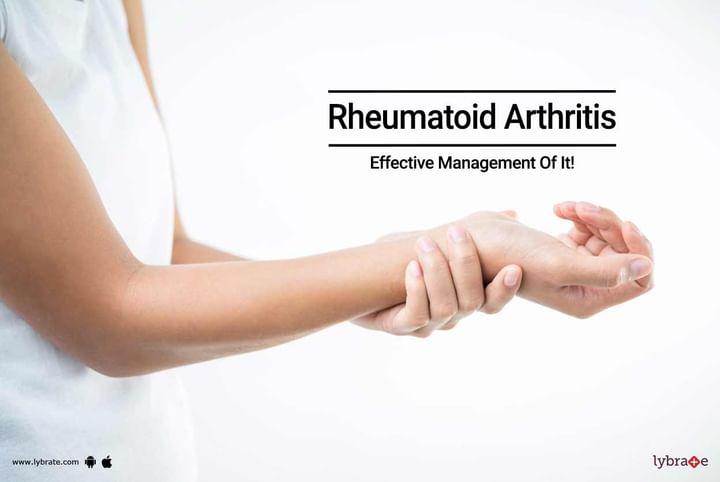Rheumatoid Arthritis - Effective Management Of It!
Over time, our joints, connective tissues and muscles go through a lot of wear and tear. Additionally, certain conditions may also cause problems, including inflammation and conditions that create persistent pain. These conditions usually fall under the broad category of arthritis, which can be of many types. Rheumatoid arthritis (RA) happens when your immune system targets your joints and causes inflammation. RA influences the joints on both sides of the body, for example, both hands, wrists and knees. This symmetry separates it from other kinds of arthritis. It can affect the skin, eyes, lungs, heart, blood, or nerves.
Various signs of inflamed joints are as follows:
-
Stiffness: Functioning of the joints becomes rigid and doesn't move properly. It is particularly severe in the morning. While those with different types of arthritis have stiff and immobile joints in the morning, people with rheumatoid arthritis take over 60 minutes before their joints feel free.
-
Swelling or Inflammation: Liquid enters the joint and gives rise to inflammation.
-
Extreme pain: Irritation inside a joint makes it painful and delicate even to touch. In a chronic condition, this may also lead to fractures.
-
Redness and warmth: The joints might appear hotter and more pink or red than the skin around it.
Needless to say, your lifestyle choices affect all aspects of your physical wellbeing, and that also include your joints- especially if you are suffering from arthritis. It’s a common theory, that joints which are strained and stressed by bearing the burden of extra pounds show more inflammation, wear and tear and stiffness which lead to aggravation of arthritic pain. Here are a few holistic approaches to consider; certain changes in your existing lifestyle that can help you to reduce your arthritic pains:
- First and foremost, it’s important that you must indulge in plenty of exercises every single day, to keep pounds off and thus help yourself handle this degenerative disease.
- In case of creating a healthy diet plan, stick to low calorie and low carb foods. Also be sure that you are consuming lots of vegetables and fruits in your diet. This also helps you to keep fit and put a break on the obesity factors that are detrimental to your health.
- As even a few extra pounds can worsen arthritic pain, keep track of your weight and talk to your orthopedic doctor to determine your optimal and healthiest weight. Focus on this prescribed weight coefficient and keep tracking your weight loss patterns unless you have reached your goal.
- Cut down on alcohol. There has never been a finer alternative to that.
- Feeling depressed or stressed by arthritic pain is a common syndrome among arthritic patients. Nevertheless, on the flipside, such reactions actually worsens the agony of this disease and inhibit you from doing what you need to do, such as taking medications and exercising to keep yourself fit at the end of the day.
Although admittedly, making drastic modifications in your lifestyle can be painful and difficult at first, these are the best remedies for easing arthritic pain in a natural way.
Don’t just rely on medications, take control of your disease in a holistic manner and you’ll soon find yourself in control of your life again.
Treatments
If rheumatoid arthritis is not treated immediately after diagnosis, it might cause further complications in the future such as lymphatic blood cancers, osteoporosis (a medical condition resulting in brittle and weak bones), blockage of the arteries and dry mouth syndrome (Xerostomia).
The treatment of rheumatoid arthritis includes:
- Prescribed dosage of non-steroidal anti-inflammatory drugs such as Ibuprofen and Naproxen, anti-rheumatoid drugs such as Methotrexate and steroidal drugs such as Prednisone help in reducing inflammation and pain. The dosage depends on the intensity of the condition.
- Performing regular exercises which will help you retain flexibility of the joints and subsequently cure rheumatoid arthritis.
- In extreme cases, the doctor might suggest surgeries such as:
- Synovectomy: A surgery that removes the damaged portion of the joint
- Joint fusion: This option will realign the joint and reduce the pain If you wish to discuss about any specific problem, you can consult a internal specialist.



+1.svg)
